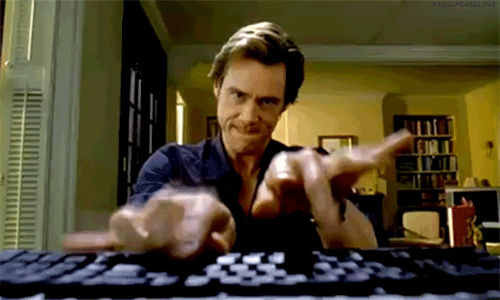Popular viral videos (as seen above with "Keyboard Cat") do not have to be of anything in particular, it literally can be of anything, what it does have to be is entertaining and yes, gain audience exposure so it can be shared. Once something is put online and become public, it has in the sense "gone viral". The key is to make you or in a strategic communications professional 's case your client or product stand out against the thousands of other videos online. The viral campaign needs to be original, something that the audience finds appealing and of course get the product or client noticed by the public. A successful example would be the bottled water aptly titled "Smart Water". Super star Jennifer Aniston, who is the face for the brand of "Smart Water", stars in the video which pokes a little fun about how videos go viral.. In the sense it's a viral video that specifically is about going viral! Does that make sense? The campaign was a huge hit and has over a 2 million views, it is largely associated with bringing "Smart Water" into the public eye (although the brand has been around since 2006) and created a thriving business which has since made more commercials with Aniston, as well as actor Jeremy Piven and endorsements by New England quarterback Tom Brady. Watch the full campaign below:
https://www.youtube.com/watch?v=kgX_IJPOifs&feature=player_embedded
A successful viral campaign can lead to great success, let's go back to 1999 when the term "going viral" was just starting to be used. One of the most successful viral marketing campaigns was created during this time and still holds the record for one of the most original campaigns that others still try to duplicate today. "The Blair Witch Project" was one of the first films to be shot in "found footage style", it looked surprisingly realistic and the directors marketed it has a true event. The marketing took place almost entirely online starting with a website (www.blairwitch.com) created by the directors detailing the legend of the Blair Witch. A few months after the existing website had been made public, posters and ads with the pictures of three "missing" students began to hit online along with snippets of the "found footage". People were immediately interested and many legitimately thought the film was real. That was all part of the appeal, thanks to the viral marketing campaign part of the fright was not knowing if the film was real or fake. The viral campaign which started around 6 months before the film premiered only cost $1 million for the studio, the film made the marketing fees back in its first weekend in limited release. "The Blair Witch Project" became the sleeper hit of the 1999 summer movie season and even after it had been revealed that the film was in fact fiction, the marketing campaigns were so realistic many still believed it was true. "The Blair Witch Project" ended up grossing over $248 million dollars and became the most profitable movie of all time (based on production costs) until 2009's "Paranormal Activity" which featured many of the same marketing tactics brought to light by "The Blair Witch Project". When creating viral campaigns, one of the most important things to remember is originality. People want to see something unique and new, it is crucial to make your campaign stick out.
Viral videos can be very useful as we have talked about already, but it is also important to know that not every viral video is necessarily beneficial. As we have talked about in other blog posts, smart phones are everywhere, anyone at any time can pull out their phone and take a picture or upload a video. This process literally takes seconds. Seconds can tear someone's reputation, career, relationship, etc. Look at the news and I can almost guarantee that there is something in the news about a comment or action that has landed someone in hot water. Case in point, LA Clippers owner Donald Sterling. But, Donald Sterling isn't the first nor will he be the last to make foolish comments. Look at "Seinfeld" alum Michael Richards whose racial outburst at a local California comedy club was taped and hit the web soon after or actor Mel Gibson who seems to have had more meltdowns and anger issues caught on tape than movies the last few years. Don't ever put yourself in a situation where you could be the top story on TMZ.
I hope you enjoyed learning about viral videos! What's your favorite viral video? A viral marketing campaign that caught your eye? Do you think the trend is here to stay? Post your answers below and leave your thoughts!
Thanks for reading!
LT









 (Photo Credit: runDisney)
(Photo Credit: runDisney)